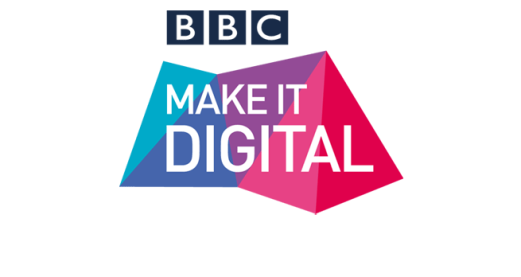
-
Review: The Digital Academic - Critical Perspectives on Digital Technologies in Higher Education
Read now to access more details of Review: The Digital Academic - Critical Perspectives on Digital Technologies in Higher EducationEschewing the polarising perspectives that often characterise discussions of digital technologies in academia, The Digital Academic: Critical Perspectives on Digital Technologies in Higher Education, edited by Deborah Lupton, Inger Mewburn and Pat Thomson, offers an insightful and diverse take on the digital landscape in Higher Education, ...

-
Foreign interference?
Read now to access more details of Foreign interference?On Monday, two stories appeared in the press about UK government concerns over foreign interference in telecommunications equipment.

-
Shape your own STEM BSc with an Open Degree
Learn more to access more details of Shape your own STEM BSc with an Open DegreeA flexible BSc that allows you to build your own study route from across science, maths and technology - and beyond.

-
Are mobile phones increasing health inequality in India?
Read now to access more details of Are mobile phones increasing health inequality in India?The spread of mobile phone ownership has increased access to health information - for those that have them. But some practitioners are worrying about those left behind, reports Aisling Irwin.

-
The house doesn't always win
Read now to access more details of The house doesn't always winA short story to get Safe Computing started in its new home...

-
What do Europe's new data rules mean for children online?
Read now to access more details of What do Europe's new data rules mean for children online?We're only weeks away from the General Data Protection Regulation [GDPR] coming into effect - and it's not entirely clear what it means for children. Sonia Livingstone & DaYoung Yoo wonder if greater clarity is generating more confusion.

-
Has Twitter's role as a political influence been overstated?
Read now to access more details of Has Twitter's role as a political influence been overstated?We are told that Twitter is the new public sphere, the place where we hold government accountable, encourage diverse voices, and provide resources for public benefit like education, healthcare, and welfare. Using the #metoo campaign as a case study, Naomi Barnes and Huw Davies question whether Twitter really is a public sphere or if it is simply...

-
How is identity data creating headaches for large companies?
Read now to access more details of How is identity data creating headaches for large companies?Increasingly the costs and risks of holding data are turning toxic for businesses. Bhargav Mitra and Robert McCausland explain why.

-
How did Facebook likes help Labour at the ballot box?
Read now to access more details of How did Facebook likes help Labour at the ballot box?The 2017 election saw a stronger than foreseen performance by the Labour Party. Matt Walsh explains how Labour’s Facebook success played out, heralding the party’s overall campaign performance. GE2017 was a numbers game: by achieving very high levels of organic reach, Labour managed to target undecided voters in marginal constituencies, energise...

-
Why is the iPhone X a thousand-dollar gamble?
Watch now to access more details of Why is the iPhone X a thousand-dollar gamble?As it launches a new model, Apple is hoping that its brand will persuade enough people to dig deep into their pockets. Loizos Heracleous explores Apple's thinking.

-
Banks as utilities and the future of payments
Read now to access more details of Banks as utilities and the future of paymentsIn a wide-ranging discussion, Ecobank's Edward George shares his personal views about the future of banks, and digital strategy across African markets.

-
What happens to the poorest in a cashless society?
Read now to access more details of What happens to the poorest in a cashless society?The race to contactless transactions and virtual currency puts those with least at the most risk, warns Dana Kornberg

-
What can emoji teach us about human civilization?
Read now to access more details of What can emoji teach us about human civilization?Is emoji another example of the dumbing-down of our language and culture or is there a more educational purpose to the little pictures used to communicate?

-
After Manchester: The strength of the city
Read now to access more details of After Manchester: The strength of the cityEven as it coped with the shock, Manchester and its people displayed their strength of character. Caroline Cheetham tells how a Northern city rallied in the streets, and on social media.

-
Seeing the internet
Read now to access more details of Seeing the internetHow do we see the internet? Gillian Rose explores why some artists and campaigners think it's important that the internet is made more visible.

-
Why are many African governments wary of social media?
Read now to access more details of Why are many African governments wary of social media?Much as in Europe, governments in Africa are nervous about how social media might influence the population. Charlotte Cross explores an difficult relationship.

-
Fake news, filter bubbles and Facebook
Read now to access more details of Fake news, filter bubbles and FacebookWho's to blame for the rapid spread of fake news in social media site Facebook?

-
Taxes and privacy: A tech business reading list
Listen now to access more details of Taxes and privacy: A tech business reading listTax judgements, privacy concerns, wonky algorithms, Labour's digital plans and antitrust worries. OpenLearn brings you a quick guide to a busy day of technology stories.

-
How can Facebook decide who you really are?
Read now to access more details of How can Facebook decide who you really are?Facebook's policy of insisting on real names is causing problems for people who value their privacy. For Ellery Roberts Biddle, the social network is overstepping its boundaries by demanding proof of identity without having proper policies in place to protect its users.

-
What effect is social media having on the way we mourn global tragedies?
Read now to access more details of What effect is social media having on the way we mourn global tragedies?Is the outpouring of grief we see on social media after a terrorist attack or the death of a prominent figure a sincere expression of emotion, or more to do with self-promotion?

-
Paris Attacks: Social media is the villain of the piece, and the hero of the hour
Read now to access more details of Paris Attacks: Social media is the villain of the piece, and the hero of the hourIn both the planning and response to the Paris Attacks on November 13th, social media played a role. Two experts explain more.

-
Make it Digital
Take part now to access more details of Make it DigitalTo celebrate the BBC's Make It Digital season, which includes three co-productions with The Open University, we have collated together a wide array of digital delights for you to get stuck into!

The thing at the top? Photographer JD Hancock explains:
Austin, Texas electronic super-scientist Dr. Bleep (aka John-Mike Reed) was kind enough to let me borrow one of his amazing audio/visual creations, a “Thingamagoop 2” to be specific. It lights up, it makes music and sound, it looks fantastic, and all of the knobs and switches actually do stuff. The Thingamagoop 2 is no longer being produced, so I am so grateful that I got to put one in front of my camera!
Rate and Review
Rate this article
Review this article
Log into OpenLearn to leave reviews and join in the conversation.
Article reviews